13 Amazing Health benefits of Ewedu Leaf/Health Facts
13 Amazing Health Benefits of Ewedu Leaf/Health Facts
Ewedu Leaf is one of the many vegetables used to make soups, particularly by the Yoruba people of Nigeria.
Also called Achingbara in Igbo, Rama in Hausa or Jute leaves in the English Language.
Ewedu leaf is botanically known as Corchorus Olitorius, molokhia leaves (in Egypt and in other northern Africa), Saluyot (in the Philippines and other southern Asian countries), and also, Jews mallow.
Please Read: Bitter Leaf Soup (Ofe Onuigbu) – How to Cook Nigerian Soups
Jute leaf is a shrub-like plant with small dark green, glossy leaves. It is these leaves that are picked and processed into food.
Health Facts of Ewedu Leaf
(Based on 100 g of picked leaves)
Calories: 41.2 kcal
Dietary fiber: 1.2 g
Carbohydrates: 2.6 g
Protein: 1.3 g
Fat: 2 g
Vitamins: C,E, A, Thiamin, Riboflavin
Minerals: Calcium, Iron
Health Benefits of Ewedu Leaf
- For weight loss
The green leaf has been described as a source of weight loss. It contains 97 calories and is an adequate source of fiber.
Jute leaf aids in dealing with weight management and may also promote intestinal health by helping with bowel movement.
- For pregnant women
Saluyot leaf is widely used as a remedy for pregnant women experiencing prolonged labor.
When a pregnant woman is in such a condition, a bunch of saluyot leaves can be squeezed to extract the juice and taken as a drink.
It has also been discovered to aid milk secretion for lactating mothers.
- Fertility
Many couples are grappling with infertility without knowing what to do.
A naturopath, Dr. Solomon Abutoh, says there is no cause for alarm because the condition can be treated.
According to him, vegetables, such as water leaves, pumpkin leaves (ugu), Ewedu, lettuce, cucumber, tomatoes, Brussels sprout, and carrots can help to correct the condition.
- Prevents aging
Also important, this vegetable is very good at maintaining youthful skin.
It contains vitamins and minerals that are very important as an antioxidant. Also, the essential fatty acids in Ewedu can preserve skin moisture.
Just as, it prevents the loss of water through the skin, it also reduces the wrinkles that are the main cause of aging.
More Ewedu Health Benefits ~ Health Benefits of Ewedu Leaf
- Improve eyes vision
- Accelerate the regeneration of body cells
- Maintain the nail clean
- Lower the risk of cataracts and other eye disorders.
- Improve the immune of the body
- Improves brain health
- Helps in hormone stabilization in women
- Stabilizes blood pressure
- Strengthens bone and teeth
Uses:
Firstly, Ewedu fresh leaves are most commonly used to make soups or smoothies in Nigeria.
Secondly, they have been reported to be added to curries and served with rice in other parts of the world
Also, the leaves tend to get gluey or sticky, like Okra, and sometimes act as a thickener in soups because of their mucilaginous texture.
Besides, dried Ewedu leaves are used to brew a type of herbal tea that is drunk for its various health benefits. This is quite common in Japan.
Other Ewedu Uses
Manufacturing: The stem/stalk of the cochorous plants is also used in the manufacturing of ropes and jute sacks.
Health & Beauty: Ewedu leaves can be used to make face masks.
Extracts of the leaves are also known to be added to beauty products such as creams and serums.
Above all, some food supplements are also believed to contain Ewedu leaf extracts.
Popular Ewedu Recipe in Nigeria
Nigerian cuisine most of the time, serves soup/stew, with a carbohydrate-rich accompaniment. A typical example is:
Ewedu Soup and Amala
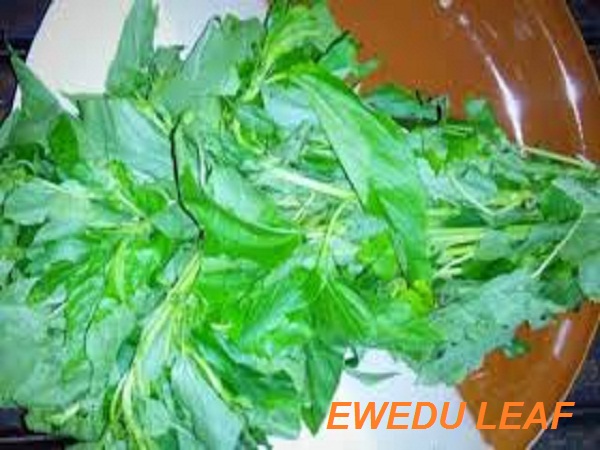
Questions People also ask about the Health Benefits of Ewedu Leaf
What are the health benefits of ewedu leaf?
Ewedu is beneficial for weight loss due to its low calorific content, and it also helps to strengthen the immune system, combat stress, and prevent heart disease.
Ewedu is a traditional medicine used to treat aches and pains, dysentery, enteritis, fever, dysentery, pectoral pains, and tumors.
Can I drink raw ewedu?
People now blend it into smoothies and drink it raw! The immature fruits are dried and ground into powder to make a slimy sauce.
Anti-nutrient levels in the leaves have been shown to be low, while zinc bioavailability is high. Face masks can be made from ewedu leaves.
What is the English name for ewedu leaves?
Jute mallow
Ewedu soup is a green slimy soup made from ewedu leaves; the English name for this plant is jute mallow, and its botanical name is Corchorus olitorius.
What effect does Ewedu soup have on the body?
Ewedu Soup is beneficial. Reduced cholesterol levels
Ewedu soup’s omega-3 content can significantly lower blood cholesterol levels and lower the risk of heart disease.
The omega-3 fatty acid content can also be used as an anti-inflammatory in the body for arthritis.
How do you prepare ewedu leaf for drinking?
Directions
- Firstly, remove the Jute leaves from the stalk and wash them in warm water to remove any dirt.
- Secondly, place in a blender and blend with a little water.
- Then, pour the blended ewedu into a glass.
- After that, add locust beans, stock cubes, and salt.
- Finally, take off the heat and that’s it.
Is jute leaf good for fertility?
Vitamins E, A, and C are abundant in jute leaves. These three nutrients are powerful antioxidants that shield cells from free radical damage.
The antioxidants in these leaves can help with vision and fertility, among other things. Vitamin E in ewedu can help the mother’s pain and increase her stamina.
Ewedu has long been used as a remedy for pregnant women who are in labor for an extended period of time. She can be given a bunch of ewedu leaves squeezed with the stem to drink.
Is ewedu a labor inducer?
In fact, no Nigerian woman can honestly say that drinking ewedu hastened her labor. Ewedu, on the other hand, is perfectly healthy and safe to consume for pregnant women and nursing mothers.
Is jute leaf safe to consume during pregnancy?
They believe that jute leaf extract could be a tocolytic agent. Tocolytic agents are used to keep a pregnancy going and may help prevent premature labor.
The alkaloids in jute leaf extract were responsible for its tocolytic effect. Alkaloids have been shown to have reversible smooth muscle relaxant properties.
Is ewedu good for diabetics?
Vegetables are high in vitamins, minerals, and antioxidants. Consuming more of this type of soup will aid in the effective management of a diabetic condition.
However, water leave soup, Edikaikong, Afang soup, Okro soup, Ewedu soup, and a few other vegetable soups are suitable for diabetics.
Ewedu leaf spiritual benefits ~ what does a leaf represent spiritually?
Because they are a part of nature, leaves frequently represent it in the most literal sense, but they also represent growth and rebirth.
Popular expressions for spiritual growth include “turning over a new leaf” and “taking a leaf out of someone else’s book.”
Ewedu leaf and fibroid ~ Is Ewedu good for fibroids?
To be sure, ewedu is very tasty, but aside from cooking and eating it, it is also a cure for many diseases in the body.
For example, ewedu can be used to treat high blood pressure, facilitate delivery, treat malaria, shrink fibroids, and unhealed wounds, treat mouth odor, and so on.
Ewedu leaf and ovulation ~ Is jute leaf beneficial to fertility?
Vitamins E, A, and C are abundant in jute leaves.
These three nutrients are powerful antioxidants that shield cells from free radical damage.
The antioxidants in these leaves can help with vision and fertility, among other things.
The side effect of Ewedu
There are some bacteria in Ewedu that are extremely dangerous if consumed.
They can cause stomachaches, diarrhea, constipation, and other diseases in the body.
Fertility and jute leaves
Vitamins E, A, and C are abundant in jute leaves. These three nutrients are powerful antioxidants that shield cells from free radical damage.
These leaves’ antioxidants can also help to improve vision and fertility among other benefits.
Ewedu leaf and fertility ~ Is Ewedu good for fertility?
Improves Fertility
According to one study, Ewedu has significantly more folic acid than other folacin-rich vegetables.
It contains approximately 800 micrograms per 100g (approximately 75% moisture) or approximately 3200 micrograms on a zero moisture basis.
The benefit of drinking raw Ewedu ~ what are the health benefits of drinking jute leaves?
Jute leaves are high in vitamins and minerals, such as vitamins A and C, which may help reduce inflammation, promote bone health, and boost the immune system.
Can I drink Ewedu raw?
People now blend it into smoothies and drink it raw!
The immature fruits are dried and ground into powder to make a slimy sauce.
Anti-nutrient levels in the leaves have been shown to be low, while zinc bioavailability is high. Face masks can be made from ewedu leaves.
How to Make Ewe Juice
Cooking Directions
- Clean your ewedu by rinsing it in clean water.
- Add the remaining ingredients to the blender along with the water and blend until the desired consistency is achieved.
- Pour into a clean cup and enjoy this delicious smoothie.
- Can be taken at any time of day.
What conditions does Ewedu treat? What does Ewedu cure?
Ewedu is a traditional medicine used to treat aches and pains, dysentery, enteritis, fever, dysentery, pectoral pains, and tumors. “Sponge up” free radicals, catching them before they cause cellular damage.
What are the benefits of drinking Ewedu leaves?
The presence of vitamins A, C, and E in the jute leaf promotes collagen production, which keeps the skin firm and beautiful. It has anti-inflammatory properties, controls blood pressure, and contains a lot of calcium, which helps to build stronger teeth and bones.
How do you prepare Ewedu leaf for drinking?
Cooking Directions
- Clean your ewedu by rinsing it in clean water.
- Add the remaining ingredients to the blender along with the water and blend until the desired consistency is achieved.
- Pour into a clean cup and enjoy this delicious smoothie.
- Can be taken at any time of day.
Is Ewedu good for men?
NEwedu is now being studied for its potential role in the treatment of prostate, ovarian, and colon cancer.
Cancer is one of the most dangerous diseases that can kill people. So, to avoid this, we should consume Ewedu.
There is enough calcium in Ewedu to keep your teeth and bones healthy.
Can I consume raw Jute leaves?
It is now blended into smoothies and consumed raw! To make a slimy sauce, the immature fruits are dried and ground into powder.
The leaves have been shown to have low anti-nutrient levels, while zinc bioavailability is high.
Ewedu leaves can be used to make face masks.
Is Ewedu capable of curing diabetes?
Vegetables are high in vitamins, minerals, and antioxidants.
Consuming more of this type of soup will aid in the effective management of a diabetic condition.
Water leave soup, Edikaikong, Afang soup, Okro soup, Ewedu soup, and a few other vegetable soups are suitable for diabetics.
What is the side effect of jute leaves?
The body’s immune system reacts in these cases, resulting in hives, swelling of the mouth or lips, and respiratory problems.
While jute leaves aren’t one of the top food allergens, it’s best to avoid them if you have any side effects after eating them.
Can Ewedu be used to treat high blood pressure?
“It contains vitamins and minerals such as calcium, potassium, iron, vitamin C, B, K, and folic acid.”
These vitamins and minerals have powerful therapeutic effects on our bodies, such as lowering blood pressure and preventing neural tube defects in pregnant women.
Can Ewedu lower cholesterol? Health Benefits of Ewedu Leaf
Ewedu also helps to improve heart health by lowering cholesterol levels in the body.
This is accomplished through the use of Omega 3 acids found in the plant.
Lowering cholesterol levels reduces the risk of heart disease.
What nutrient does Ewedu contain? Health Benefits of Ewedu Leaf
A half cup of cooked Ewedu leaves contains the following nutrients: 1.3g protein, 0.3g fat, 3.1g carbohydrates, 0.4g fiber, 87.3mg calcium, 22.5mg phosphorous, 1.0mg iron, 0.02mg thiamine, 0.04mg riboflavin, 0.3mg niacin, and 10mg Ascorbic Acid or vitamin C.
Ewedu has a 77% antioxidant activity.
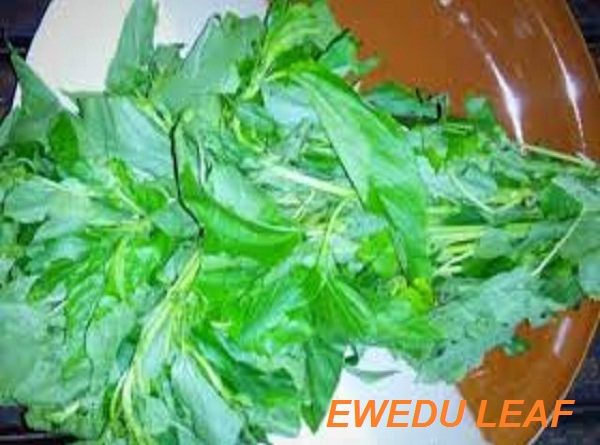
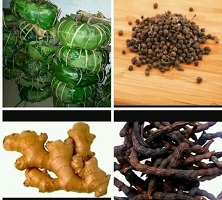
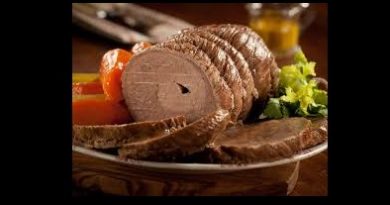
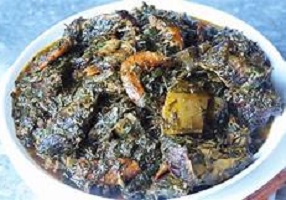
Pingback: Indigenous Leafy Vegetables and Herbs in Nigeria - 9jafoods